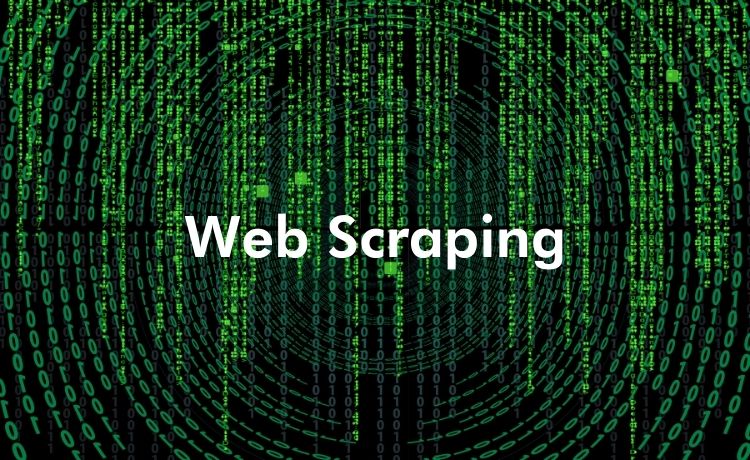More than anything else, the world now revolves around data, and data can determine how quickly a company grows or dies. Considering every an important business decision that needs to be taken today, failure to regularly collect relevant data could lead to poor revenue or even a complete collapse of the franchise.
But with about 2.5 quintillion bytes of data being generated on the internet every day, the question now is, which of these data are we free to collect automatically? Not every data generated is public data; hence it is not legal to collect any data that is not available publicly. To ensure the data relevant to your business is collected efficiently and in a legally compliant manner, employing a professional data mining company can be a good approach.
Today, we will consider all the data types you can scrape legally and freely, what web scraping is a process, and what you can use all that data for.
What is Web Scraping?
Web scraping is also popularly called data scraping and is considered the most effective way to get data from the internet. It can be defined as the series of actions taken to harvest large sums of data from multiple sources at once. The process begins by querying a data source, extracting data from it, and then moving to parse and store that extracted data.
The process is usually automated and repetitive. It is automated because the work can get easily overbearing and wear out even the strongest person. It is repetitive because new data is always being generated and needs to be collected.
There are several sources where publicly available data can be easily harvested, including websites and social media platforms. And once extracted, the data is applicable in possibly all industries – from e-commerce to job employment and real estate.
These industries require different types of data and use them for very specific reasons.
What is Web Scraping Used For?
The data extracted using web scraping tools can be used in several ways, including the following:
1. For Price and Competition Monitoring
This is a very common application of data in the e-commerce industry. Data is regularly collected to help businesses monitor the prices of goods and services they are selling. This can help them see when they are overpricing or under-pricing and make the necessary adjustments to retain customers and make the most profit.
Also, extracted data can be used to keep an eye on the competition to know what they are doing and how to beat them in the market.
2. For Lead Generation
This particular application spans different industries. Every business that needs customers should generate leads somehow, and web scraping offers the most promising opportunity.
Data can be collected from various platforms and put together to create leads that will turn into customers.
3. For Brand Protection
Businesses need to protect themselves and their assets because failure to do so would result in irreparable damages. Protecting a brand and its reputation includes measures that observe the internet regularly for any mention of the brand. This can be done by collecting a large amount of data from the web.
4. For Real Estate
The real estate industry is also another great beneficiary of web scraping. Data collected can be used in determining new prices across different locations, new listings, as well as the general trend in the real estate market. This benefits not just sellers but buyers as well.
5. For Training Algorithms
In recent years, Artificial Intelligence (AI) has become an integral component in web scraping. It has improved how data is collected and opened doors that remained shut with traditional web scraping.
However, to train the machines, we still need to collect a large amount of user data. The data is fed in the algorithms continuously to make it easier for them to recognize more patterns and get the job done more autonomously.
What Type of Data Can We Collect Via Web Scraping?
Described below are the most popular types of data we can easily collect without breaking any laws:
- Surveys: these are collected by administering questionnaires at different levels, which are distributed through online forms and other data collection methods. The data collected can be used to judge public opinions and make important decisions both in business and in the government
- Reviews: customer reviews are usually scraped from various forums and discussion groups. They contain an essential ingredient in growing and improving a brand – customer’s thoughts.
- Market Pricing: this data is obtained from various key marketplaces like Amazon, eBay, and Facebook. This information can help a brand reset its prices to compete fairly in the global market.
- Images: not all data are in text formats; some are simple images collected for several reasons. Scraping images from websites can be used for ad verification or training an algorithm to pass a CAPTCHA test easily. To learn more, read this article on how to scrape images from a website.
- Real Estate Data: this could be in texts, scrap images from websites, or related videos on the internet. It carries a wealth of information for sellers and buyers alike.
Conclusion
Data is important for every business, whether a new small business or an old larger enterprise. Data is vital to help set prices of new products as well as make key business decisions. Companies pay very keen attention to data because failure to do so is tantamount to deliberate sabotage.
However, no respectful business goes to steal illegal data. There is plenty of publicly available data that can sufficiently help to grow your business. We have only covered a few of them in this article, and you can try to check out more.


